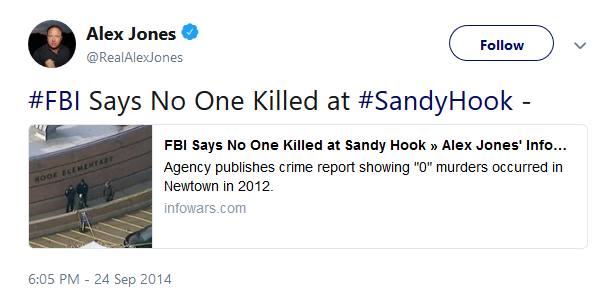Across the internet, a war is waging: Free speech versus the spread of false information and conspiracy theories. Social media companies are buckling under the pressure as the public condemns them for allowing vitriolic conspiracy peddlers to remain on their sites. One company, however, is steadfast in its defense of free speech, which includes Sandy Hook conspiracy theories: WordPress.
As the New York Times reports, Leonard Pozner spends hours each day finding and attempting to scrub the internet of hurtful Sandy Hook conspiracy theories. The theories he’s trying to quell are ones that say the death of his 6-year old son, Noah, was a hoax. In particular, he flags content that uses his son’s image in negative ways, ones that say Sandy Hook was a hoax or call the child out as a crisis actor.
It’s a heart-wrenching situation, and he’s had some success in flagging content shared to Facebook, Google, and Amazon. Blog posts shared to WordPress, however, are a different story.
“Posting conspiracy theories or untrue content is not banned from WordPress.com, and unfortunately this is one of those situations,” Automattic told the New York Times in a statement. “It is a truly awful situation, and we are sympathetic to the Pozner family.”
Pozner, in some cases, has tried getting content removed after filing copyright claims on his son’s photos. However, even this won’t work for Automattic, which has deemed the imagery to be “fair use.” (A stance one Stanford lecturer considered “outside the norm,” as fair use determinations can be incredibly complex.) The company has these policies in place to protect journalism, but in this case, it also seems to be protecting the conspiracy theories of the far-right.
Automattic’s CEO has said in a Recode interview that the company avoids hate speech, and egregiously fake, harmful things on its platform.
Striking the right balance between allowing people to share what they want to share, protecting journalists from outlandish copyright claims, and ensuring dangerous content doesn’t proliferate is proving one of the toughest challenges of technology companies in 2018.
H/T the New York Times



